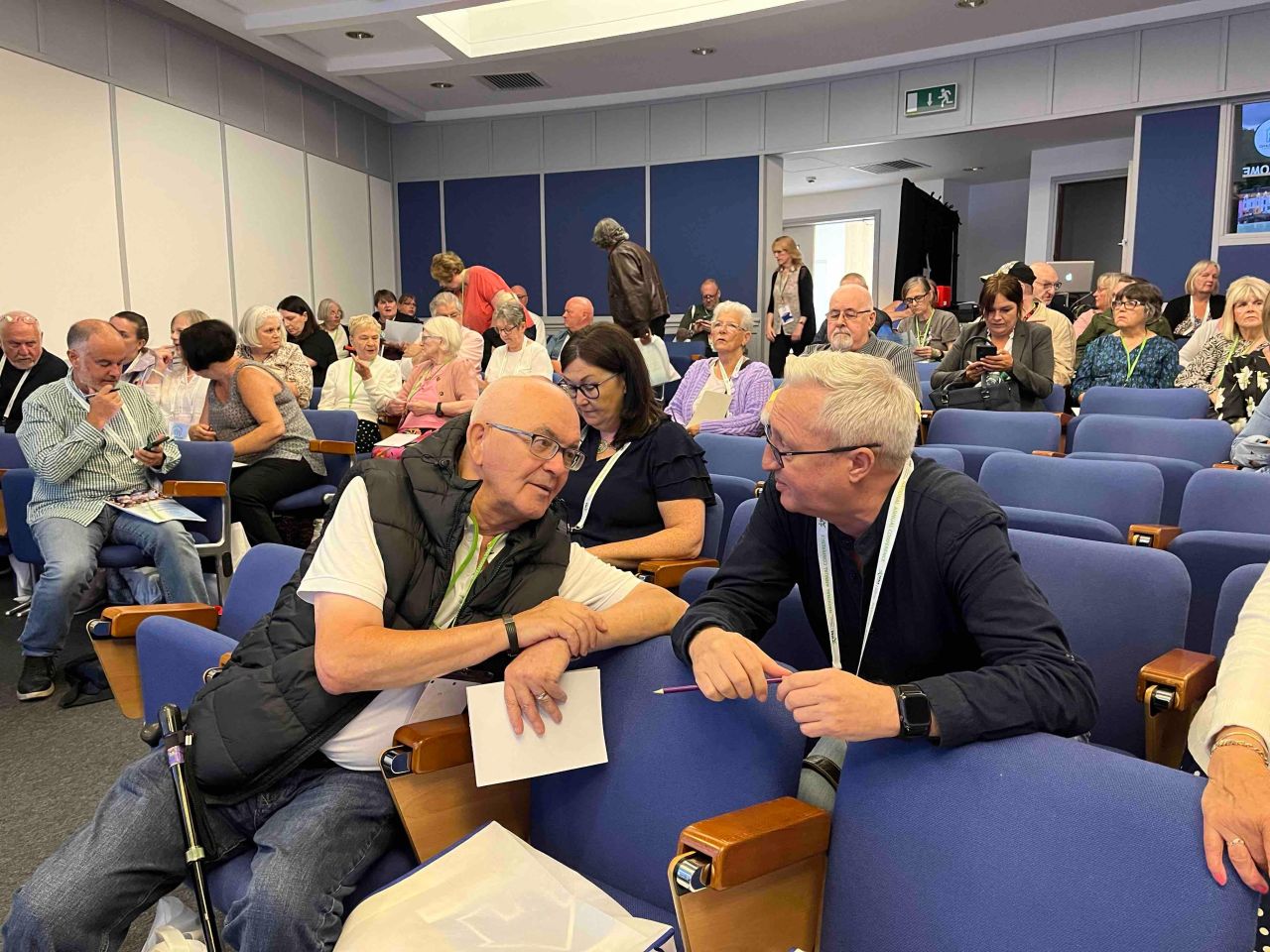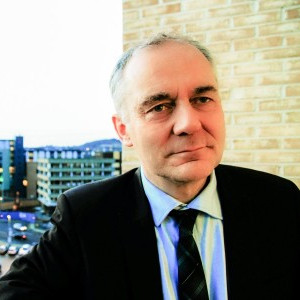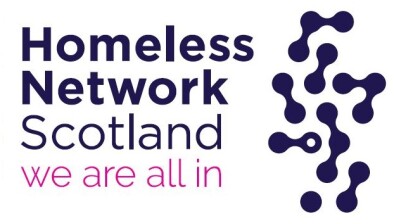Black’s Blog: Communication key to tenant participation

The audience preparing for the panel session at the TPAS Scotland Annual Conference
“The best way to encourage tenant participation is to be a terrible landlord”. It sounds like an essay topic for a housing student, but these were the words of David Bookbinder spoken on the Scottish Housing News Podcast.
SHN editor Kieran Findlay and I recorded an episode on tenant participation in front of a live audience at the TPAS Scotland conference in Clydebank. Anne Marie Brown, CEO of Dalmuir Park Housing Association was our other panel member; David Bookbinder is the director of the Glasgow and West of Scotland Forum on Housing Associations.
David’s bold statement was not in any sense an exhortation. He was pointing out that tenants get involved when they have a reason to do so. If they are happy with their landlord, they are less likely to form committees and run campaigns.
Just forming an organisation can be a barrier to some of the things tenants want to do together. One of the delegates said she wants to help people in their community who are struggling with the cost of living. But she says her group cannot get grants because they are not constituted as an organisation. When I said, “Well, set up an organisation then”, she said, “We don’t want to.” I think the bureaucracy surrounding community groups was a disincentive. Personally, having been on many committees, I can understand why. Other delegates helpfully chipped in some ideas about how to get round the problem.
Discussing the drive to net zero carbon housing brought out some issues. An engineer in the audience was sceptical about the way radiators for air source heat pumps are being fitted in a local scheme, and expressed frustration at tenants being used as guinea pigs for new systems such as hydrogen boilers.
Anne Marie acknowledged with concern that internally and externally insulating pre-1919 sandstone tenements would be hugely disruptive for tenants. David said the Scottish Government would need to fund at least 50% of the cost of new systems as it would be unfair to expect tenants to pay for it all. I pointed out that some landlords might be tempted to go for storage heaters or demolition to meet their net zero obligations.
On participation generally, there seemed to be an acceptance that tenants are less likely to be in formal registered tenants organisations. They are also less likely to be involved in housing association committees, which with increased regulation and multi-million-pound businesses are becoming the preserve of retired professionals. For all that, David can quote research which shows there is still a significant contribution by tenants to RSL committees, or boards, in Glasgow and the West. Also, roughly 75% of committee members were local people.
David said that decreasing formal tenant participation makes it all the more important that landlords make a continuous effort to find out what their tenants are thinking, through good communication. Anne Marie said that smaller associations find it easy to get out and about in their communities to find out what’s going on, since their staff work and possibly live in the areas they serve.
There was warm approval from the audience for Dalmuir Park’s efforts to assist struggling tenants with food and fuel, and questions about what happens if funding for cost-of-living projects comes to an end. The obvious answer is that the projects stop, but that’s not always true. Anne Marie and her colleagues have been finding ways of keeping things going. If you listen to the episode you’re find out more…
The Scottish Housing News Podcast is co-hosted by Kieran Findlay and Jimmy Black. All episodes are available here as well as on the following platforms:









